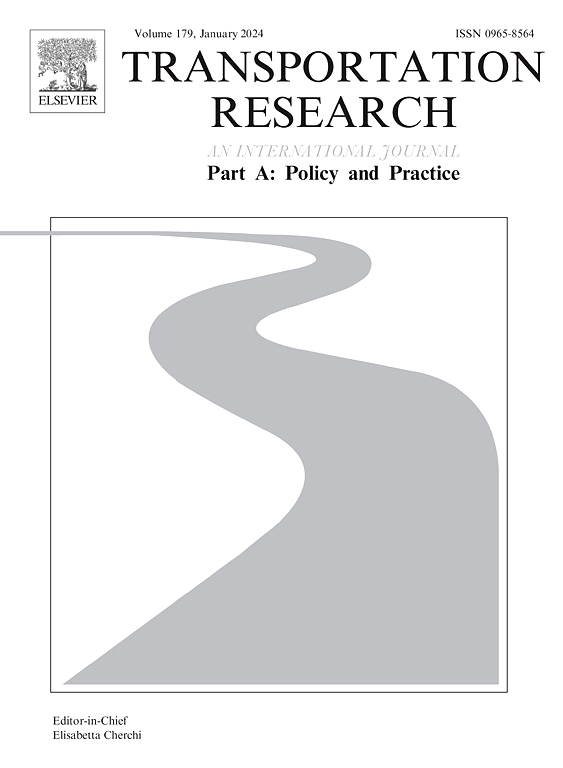A stated choice study to assess charging and travel decisions of electric car users considering car attributes and trip chaining complexity – Case New Delhi, India
IF 6.3
1区 工程技术
Q1 ECONOMICS
Transportation Research Part A-Policy and Practice
Pub Date : 2025-02-01
DOI:10.1016/j.tra.2024.104366
引用次数: 0
Abstract
This paper investigates the travel and charging choices of electric car users who also own a conventional-fuel vehicle. While travel behavior impacts on charging decisions have been explored in earlier studies, studies have excluded the possibility of shifting to conventional fuel vehicles by electric car users. In addition, the effects of the time spent at destinations on charging choices are also unexplored in travel behavior literature. Using a stated choice data collected in New Delhi, India, the study estimates a nested integrated choice and latent variable model to assess individuals’ choices among ‘travel according to the tour plan without charging the EV, ‘travel according to the tour plan with charging the EV’ and ‘complete the tour by shifting to conventional-fuel vehicles’. The study finds that increased tour distance leads to the choice of conventional fuel vehicle over the electric car. Besides, participation in a work tour and trip chain complexity positively affects choice of conventional fuel vehicles. While a higher initial SoC leads to decreased preferences for completing a tour on electric car with charging and shifting to conventional fuel vehicles. Overall, the study finds that travel behavior influences charging choices and travel decisions, E-car users still value conventional-fuel vehicles in accomplishing their travel patterns if E-car attributes are unfavorable.
求助全文
约1分钟内获得全文
求助全文
来源期刊
CiteScore
13.20
自引率
7.80%
发文量
257
审稿时长
9.8 months
期刊介绍:
Transportation Research: Part A contains papers of general interest in all passenger and freight transportation modes: policy analysis, formulation and evaluation; planning; interaction with the political, socioeconomic and physical environment; design, management and evaluation of transportation systems. Topics are approached from any discipline or perspective: economics, engineering, sociology, psychology, etc. Case studies, survey and expository papers are included, as are articles which contribute to unification of the field, or to an understanding of the comparative aspects of different systems. Papers which assess the scope for technological innovation within a social or political framework are also published. The journal is international, and places equal emphasis on the problems of industrialized and non-industrialized regions.
Part A''s aims and scope are complementary to Transportation Research Part B: Methodological, Part C: Emerging Technologies and Part D: Transport and Environment. Part E: Logistics and Transportation Review. Part F: Traffic Psychology and Behaviour. The complete set forms the most cohesive and comprehensive reference of current research in transportation science.

 求助内容:
求助内容: 应助结果提醒方式:
应助结果提醒方式:


